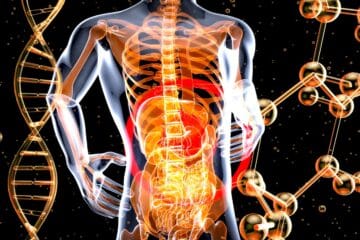In the rich tapestry of Traditional Chinese Medicine (TCM), the concept of the Hun stands out as a profound element of the human psyche. Often translated as the “ethereal soul,” the Hun represents our spiritual essence, creativity, and connection to the broader universe. Unlike Western medicine’s focus on physical anatomy, TCM views health as a balance of body, mind, and spirit, with the Hun playing a pivotal role in emotional and mental well-being. This blog post delves into the backstory of the Hun, its historical origins, and its practical implications in TCM practices like acupuncture and herbal medicine (the stuff that we specialize in). We’ll explore how an imbalanced Hun manifests in daily life, the signs of a healthy Hun, and simple lifestyle adjustments to nurture it. By understanding the Hun, we can foster greater harmony in our lives.
The Backstory and History of the Hun
The concept of the Hun has deep roots in ancient Chinese philosophy and religion, emerging from a dualistic view of the soul that dates back thousands of years. In Chinese thought, every person possesses two primary souls: the Hun (ethereal soul) and the Po (corporeal soul). This soul dualism, known as Hun and Po, originated in prehistoric shamanic practices during the time of legendary figures like Fu Xi, Huang Di (the Yellow Emperor), and Shen Nong, who are credited with laying the foundations of Chinese culture and medicine.[4] These early shamans engaged in rituals to communicate with spirits, and the Hun-Po model evolved from beliefs in ancestral ghosts and ethereal entities.[1]
Historically, the Hun is described in foundational texts like the Huang Di Nei Jing (Yellow Emperor’s Classic of Internal Medicine), one of the oldest medical treatises, compiled around the 2nd century BCE. Here, the Hun is associated with the Liver organ and represents the yang aspect of the soul—light, ascending, and connected to heaven.[2] According to ancient beliefs, the Hun enters the body shortly after birth, specifically three days postpartum, and is ethereal in nature, surviving beyond death to join the ancestral spirits.[3] The Chinese character for Hun combines elements meaning “cloud” and “ghost,” symbolizing its intangible, wandering quality—like a spirit or dream that floats freely.[7]
This dualism reflects broader Daoist and Confucian influences. In Daoism, the Hun embodies the spiritual journey, intuition, and creativity, while in TCM, it integrates with the five Shen (spirits) system, where the Hun is one of five vital aspects of consciousness housed in the organs.[6] The Hun is stored in the Liver, which governs the smooth flow of Qi (vital energy), and it influences planning, decision-making, and emotional regulation.[5] Over centuries, as TCM evolved from shamanic exorcisms to systematic acupuncture and herbology, the Hun became central to treating mental-emotional disorders.[2]
In essence, the Hun’s history traces from animistic beliefs to a sophisticated psychological model in TCM, emphasizing its role as the bridge between the material world and the divine.
How the Hun Influences Acupuncture Point Selection
In TCM acupuncture, point selection is not arbitrary but guided by the patient’s energetic imbalances, with the Hun’s state being a key diagnostic factor. The Hun resides in the Liver, so treatments often target Liver meridians to anchor or mobilize it. When the Hun is restless—due to Liver Qi stagnation or Blood deficiency—acupuncturists choose points that soothe the Liver, nourish Blood, and calm the spirit.[10]
For instance, BL-47 (Hunmen, or “Gate of the Hun”) is a primary point for directly addressing the ethereal soul. Located on the Bladder meridian, it cleanses the Liver, supports addiction recovery, and enhances the Hun’s healthy functioning by regulating Liver Qi flow.[8] This point is especially useful for emotional issues like frustration or dream-disturbed sleep, as it helps the Hun root into the body at night.[9]
Other common points include HT-7 (Shenmen, “Spirit Gate”), which calms the Heart and indirectly anchors the Hun by harmonizing its relationship with the Shen (mind-spirit), promoting emotional balance.[10] Liver points like LIV-3 (Taichong) and LIV-14 (Qimen) are selected to smooth Qi stagnation, which can cause the Hun to wander excessively, leading to anxiety or irritability.[10]
Point selection also considers the Hun’s interaction with other spirits. For example, if the Hun is overactive (manic behavior), points to descend Yang and anchor the soul are prioritized; if deficient, tonifying points nourish Liver Blood to house the Hun properly.[2] This holistic approach ensures acupuncture not only alleviates symptoms but restores the Hun’s natural movement—in and out of the body—for spiritual and emotional harmony.
How a Person Acts If Their Hun Is Not Doing Well
When the Hun is imbalanced, often due to Liver Qi stagnation, Blood deficiency, or emotional suppression, it manifests in distinct behavioral and physical patterns. A restless Hun fails to anchor at night, leading to insomnia, vivid or disturbing dreams, and sleepwalking.[11] Individuals may wake frequently, feeling unrefreshed, as the ethereal soul wanders unchecked.[13]
Emotionally, an unsettled Hun breeds irritability, anger outbursts, and frustration—hallmarks of Liver imbalance.[12] People might suppress emotions, leading to a “lump in the throat” sensation (plum-pit Qi) or frequent sighing.[14] In severe cases, this escalates to mood swings, depression, or a lack of direction, where life feels aimless and uninspired.[14] Physical symptoms include headaches, high blood pressure, blurred vision, floaters, dry nails, and digestive issues like bloating from Qi stagnation.[13]
Behaviorally, someone with a weak Hun may procrastinate, struggle with planning, or feel disconnected from their purpose, often stemming from chronic stress or sedentary lifestyles.[12] They might exhibit restlessness, existential fear, or a desire to escape responsibilities, mirroring the Hun’s ungrounded nature.[11] In extreme imbalances, this can contribute to mental illnesses like anxiety disorders or even manic episodes, where the psyche detaches entirely.[14]
How a Person Acts If Their Hun Is Doing Well
Conversely, a healthy Hun fosters clarity, creativity, and emotional resilience. When anchored by abundant Liver Blood and smooth Qi flow, the Hun moves freely—entering the body during wakefulness for inspiration and exiting at night for restful sleep without excessive dreaming.[15]
Individuals with a balanced Hun exhibit strong intuition, clear decision-making, and a sense of purpose. They plan effectively, pursue long-term goals with enthusiasm, and adapt to life’s changes with flexibility.[6] Creativity flourishes; ideas flow naturally, and they engage in artistic or visionary pursuits.[11] Emotionally, there’s harmony—no explosive anger but measured responses, with a deep connection to spirituality and dreams that provide guidance rather than disruption.[5]
Physically, signs include vibrant eyes, strong nails, and balanced energy levels. Sleep is deep and restorative, supporting overall vitality.[15] Such people lead themselves well, maintaining routines and finding joy in life’s direction, embodying the Hun’s role as the “ethereal soul” in harmony with heaven.[2]
Herbal Formulas Used to Support the Hun
TCM herbalism offers potent formulas to nourish the Hun, primarily by tonifying Liver Blood, smoothing Qi, and calming the spirit. Xiao Yao San (Free and Easy Wanderer) is a classic, containing herbs like Bupleurum, Peony, and Cyperus to relieve Liver Qi stagnation, reduce irritability, and anchor the Hun for better sleep and mood.[16]
For restlessness, An Shen Bu Xin Wan calms the Shen and Hun with heavy anchors like Zhen Zhu Mu (pearl shell), nourishing the Heart-Liver axis.[17] Gui Pi Tang (Restore the Spleen Decoction) supports by generating Blood to house the Hun, using herbs like ginseng and licorice for those with Spleen deficiency contributing to imbalance.[17]
Other formulas include those with Spirit Poria (Fuling) to soothe the Hun and promote stability, or custom blends focusing on Shen-Hun regulation.[16] Always consult a TCM practitioner, as formulas are tailored to individual patterns.
Simple Everyday Ways to Help the Hun
Supporting the Hun doesn’t require complex interventions; everyday habits can nurture it profoundly. Start with movement: Practices like Qi Gong, Tai Chi, or gentle yoga smooth Liver Qi, allowing the Hun to engage and detach harmoniously.[18] Aim for 30 minutes daily to counteract sedentary lifestyles that stagnate Qi.
Diet plays a crucial role—incorporate sour foods like lemons or vinegar to nourish the Liver, along with greens, ginger, and goji berries for Blood building.[19] Eat seasonally and cooked meals to support digestion, avoiding excess alcohol or greasy foods that burden the Liver.[20]
Meditation and journaling dreams foster the Hun’s creativity; spend 10-15 minutes daily reflecting or engaging in art to provide direction.[18] Herbal teas like chamomile or rose can calm the spirit, while consistent sleep hygiene—dark rooms, early bedtimes—anchors the Hun at night.[11]
Stress management through nature walks or acupressure on LIV-3 promotes emotional flow.[19] These habits, rooted in Yang Sheng, build resilience over time.
Conclusion
The Hun, as the ethereal soul in TCM, bridges our dreams and reality, influencing everything from creativity to emotional stability. By understanding its history and role, we can address imbalances through targeted acupuncture, herbs, and daily practices for a more inspired life. Stay tuned for our next post on the Shen, the other vital part of a person’s psyche, exploring the mind-spirit’s profound impact. If you need help balancing your Hun, contact Acupuncture & Holistic Health Associates for personalized guidance.
- Hun and po – Wikipedia
- Shen and Hun: The Psyche in Chinese Medicine
- The Ethereal Soul (Hun) – Giovanni Maciocia
- Taoist Models of Hun and Po, Part One | Acupuncture Today
- The 3 Wise Hun and the 7 Po – TCM Academy
- The Five Spirits of Taoism and Chinese Medicine – Jennifer Raye
- Hun & Po Ethereal & Corporeal Soul In Taoism – Learn Religions
- Hunmen (BL 47) | Master Tung’s Acupuncture
- hun | Five Element Acupressure
- The Five Spirits in Chinese Medicine – AcuPro Academy
- Support Your “Hun” (Soul) In TCM To Feel Peaceful & Calm
- Shen and Hun: The Psyche in Chinese Medicine
- Hun – The Spirit of Wood | Five Element Acupressure
- The Five Shen: Because Sometimes One Soul Just Isn’t Enough
- The 5 Spirits: Supporting The Soul in Chinese Medicine
- Most Common Chinese Herb Formulas – KPC
- Supporting the Acupuncture Treatment: Chinese Herbal Formulas
- Stuck Type TCM Patterns: Diet and Lifestyle Tips
- Uncovering Ancient Wisdom: Traditional Chinese Medicine’s Liver Support Secrets
- Foods, Herbs and Lifestyle Choices to Support Yin


